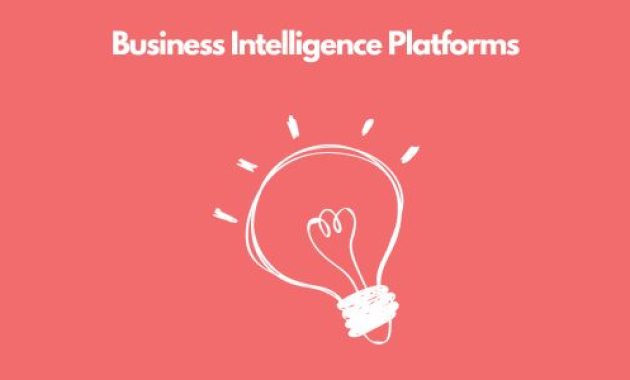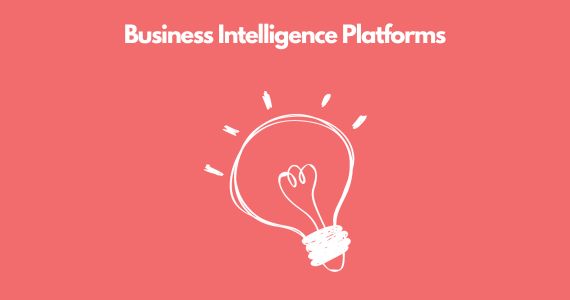
The Ultimate Guide to Business Intelligence Software for Marketers: Data-Driven Decisions for Marketing Success
In today’s hyper-competitive marketing landscape, gut feelings and intuition are no longer enough. The ability to make data-driven decisions is paramount to success. This is where Business Intelligence (BI) software comes into play. This comprehensive guide provides marketers with everything they need to know about leveraging Business Intelligence software to gain a competitive edge. We will explore the core concepts, benefits, types, and implementation strategies of Business Intelligence software specifically tailored for marketing professionals.
Understanding the Fundamentals of Business Intelligence for Marketing
At its core, Business Intelligence (BI) is the process of collecting, analyzing, and interpreting data. The goal is to uncover actionable insights that drive better decision-making. For marketers, this translates to understanding customer behavior, campaign performance, and market trends. This knowledge empowers marketers to optimize strategies, allocate resources effectively, and ultimately, improve ROI. Business Intelligence software provides the tools necessary to automate and streamline this process.
Business Intelligence is not just about crunching numbers. It’s about transforming raw data into meaningful information. This information can then be used to inform strategic decisions. Marketers can use Business Intelligence to track key performance indicators (KPIs), identify areas for improvement, and personalize customer experiences. Data visualization tools within Business Intelligence software allow for easy interpretation of complex data sets.
The Key Benefits of Using Business Intelligence Software in Marketing
Implementing Business Intelligence software offers a multitude of benefits for marketing teams. These benefits directly contribute to improved performance and increased profitability. Here’s a breakdown of the key advantages:
- Improved Decision-Making: Business Intelligence software provides data-backed insights. This allows marketers to make more informed decisions. This reduces reliance on guesswork.
- Enhanced Campaign Performance: Track and analyze campaign data in real-time. Identify underperforming areas and optimize accordingly. This leads to higher conversion rates and better ROI.
- Deeper Customer Understanding: Gain a comprehensive view of customer behavior. Understand their preferences, needs, and pain points. This enables personalized marketing efforts.
- Increased Efficiency: Automate data collection, analysis, and reporting. This frees up valuable time for marketers to focus on strategic initiatives.
- Better Resource Allocation: Identify the most effective marketing channels and tactics. Allocate resources strategically to maximize impact.
- Competitive Advantage: Stay ahead of the competition by identifying market trends and opportunities. Adapt quickly to changes in the market.
Types of Business Intelligence Software for Marketers
The market offers a wide range of Business Intelligence software solutions. These solutions cater to different needs and budgets. Choosing the right software is crucial for maximizing its benefits. Here are some popular types:
- Data Visualization Tools: These tools focus on presenting data in a visually appealing and easy-to-understand format. Examples include Tableau, Power BI, and Google Data Studio. These tools transform complex data into interactive dashboards and reports.
- Reporting Software: This software generates reports based on pre-defined metrics and data sources. These reports can be customized and scheduled for regular delivery. Examples include Microsoft SQL Server Reporting Services (SSRS) and SAP Crystal Reports.
- Data Mining Software: This software uses advanced analytical techniques to uncover hidden patterns and insights within large datasets. Examples include RapidMiner and KNIME. This type of software is useful for predictive analytics.
- Dashboard Software: This software provides a centralized view of key performance indicators (KPIs). Dashboards allow marketers to monitor performance in real-time. Examples include Klipfolio and Databox.
- All-in-One BI Platforms: These platforms combine multiple BI functionalities into a single solution. They often include data visualization, reporting, and data mining capabilities. Examples include Domo and Sisense.
Essential Features to Look for in Business Intelligence Software
Selecting the right Business Intelligence software requires careful consideration of your specific needs. Certain features are essential for marketers to effectively leverage the software. Consider these features:
- Data Integration: The ability to connect to various data sources. This includes CRM systems, marketing automation platforms, and social media channels.
- Data Visualization: User-friendly dashboards and interactive charts. This allows for easy interpretation of data.
- Reporting Capabilities: Customizable reports that can be scheduled and automated. This saves time and ensures consistent reporting.
- Data Analysis: Advanced analytical capabilities. This allows for in-depth analysis of data.
- Real-time Data: The ability to access and analyze data in real-time. This enables quick decision-making.
- Mobile Accessibility: Access to dashboards and reports on mobile devices. This allows for on-the-go monitoring.
- User-Friendly Interface: An intuitive and easy-to-use interface. This ensures ease of adoption by the marketing team.
- Scalability: The ability to handle growing data volumes. This ensures the software can meet future needs.
Implementing Business Intelligence Software: A Step-by-Step Guide
Implementing Business Intelligence software successfully requires a structured approach. This ensures a smooth transition and maximizes the value of the software. Follow these steps:
- Define Your Objectives: Clearly identify your business goals and key performance indicators (KPIs). Determine what you want to achieve with the software.
- Choose the Right Software: Evaluate different software options. Choose the one that best aligns with your needs and budget.
- Integrate Your Data Sources: Connect the software to your various data sources. This includes CRM, marketing automation, and social media platforms.
- Clean and Prepare Your Data: Ensure data accuracy and consistency. Clean and prepare your data for analysis.
- Create Dashboards and Reports: Design dashboards and reports to track your KPIs. Make sure these are easy to understand and actionable.
- Train Your Team: Provide training to your marketing team. Ensure they know how to use the software effectively.
- Analyze and Interpret Data: Regularly analyze the data. Identify trends, patterns, and insights.
- Make Data-Driven Decisions: Use the insights to inform your marketing strategies. Make data-driven decisions to optimize performance.
- Monitor and Refine: Continuously monitor your results. Refine your strategies based on the data.
Real-World Examples: How Marketers are Using Business Intelligence Software
Many marketers are already experiencing the benefits of Business Intelligence software. Here are some real-world examples of how it can be applied:
- Campaign Performance Analysis: Track the performance of different marketing campaigns. Identify which campaigns are most effective. Optimize campaigns based on real-time data.
- Customer Segmentation: Segment customers based on their behavior and demographics. Personalize marketing messages. Improve customer engagement.
- Lead Generation Optimization: Track lead generation efforts. Identify the most effective lead sources. Optimize your lead generation strategies.
- Website Analytics: Analyze website traffic and user behavior. Optimize website content and design. Improve conversion rates.
- Social Media Monitoring: Track social media engagement. Monitor brand mentions and sentiment. Refine social media strategies.
- Predictive Analytics: Use data to predict future trends. Make proactive decisions. Stay ahead of the competition.
Best Practices for Maximizing the Value of Business Intelligence Software
To get the most out of your Business Intelligence software, follow these best practices:
- Define Clear KPIs: Establish specific, measurable, achievable, relevant, and time-bound (SMART) KPIs. This provides a clear focus.
- Ensure Data Accuracy: Regularly audit your data. Ensure its accuracy and consistency.
- Invest in Training: Provide comprehensive training to your team. This ensures they can effectively use the software.
- Foster a Data-Driven Culture: Encourage a culture of data-driven decision-making. Make sure everyone understands the importance of data.
- Regularly Review and Update: Regularly review your dashboards and reports. Update them to reflect changing business needs.
- Stay Up-to-Date: Keep abreast of the latest BI trends. Explore new features and functionalities.
The Future of Business Intelligence in Marketing
The future of Business Intelligence in marketing is bright. As technology advances, we can expect even more sophisticated tools. These tools will enable marketers to make even more informed decisions. Here are some trends to watch:
- Artificial Intelligence (AI): AI will play an increasingly important role in BI. AI will automate data analysis and generate insights.
- Machine Learning (ML): ML will be used for predictive analytics. This allows for more accurate forecasting.
- Data Democratization: Making data accessible to everyone in the organization. This empowers everyone to make data-driven decisions.
- Cloud-Based Solutions: Cloud-based BI solutions are becoming more popular. They offer greater flexibility and scalability.
- Focus on Privacy: Data privacy regulations are becoming stricter. BI solutions must prioritize data privacy and security.
Conclusion: Embracing Data-Driven Marketing with Business Intelligence Software
Business Intelligence software is no longer a luxury for marketers. It is a necessity. By embracing data-driven decision-making, marketers can gain a significant competitive advantage. This ultimate guide provides the knowledge and tools needed to succeed. Start leveraging the power of Business Intelligence software today. Transform your marketing efforts. Drive measurable results. Make informed decisions. Optimize marketing strategies.
Embrace the power of data. Make informed decisions. Elevate your marketing strategies. Business Intelligence software is the key. Unlock your marketing success.
[See also: Related Article Titles]
